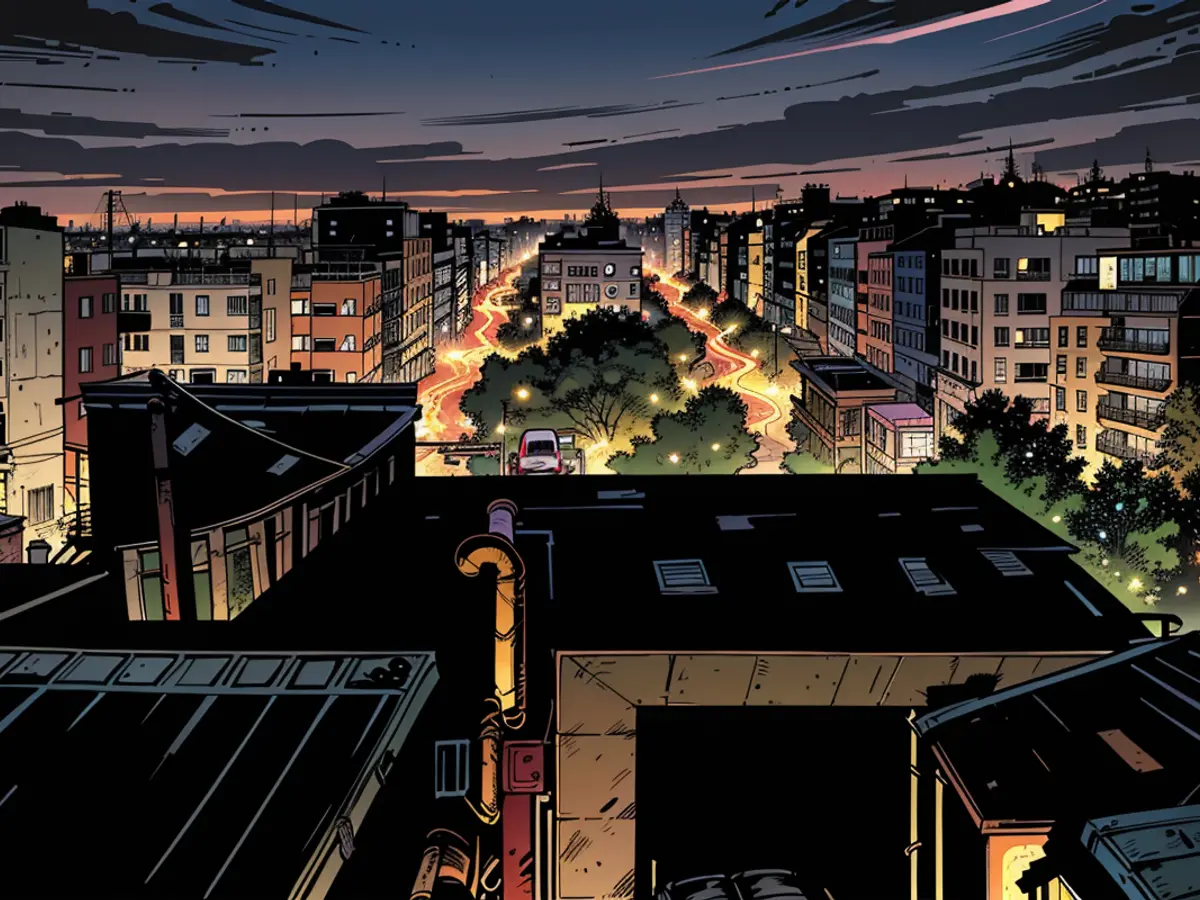Israel issued a warning to Iran and threatened to launch a significant military operation.
Minimal Losses, Moderate Harm. Iranian Leadership Downplays Iran's Reaction Reprisals' Consequences. Region Remains Wary of Escalation. Experts Predict Conflict Won't Intensefy.
The United States warned Iran against retaliating against Israel's retaliation. The Iranian leadership in Tehran, however, remained composed: two soldiers reportedly lost their lives, and the extent of damage from the Israeli raids was minimal, they claimed. Nevertheless, the region remains anxious about further escalation. German Chancellor Olaf Scholz urged restraint from Iran. France and the United Kingdom both called for both parties to exercise caution.
The Israeli retaliation followed the Iranian Revolutionary Guards' launch of about 200 ballistic missiles on October 1st in retaliation for past Israeli operations against Iran-aligned militias, such as Hezbollah and Hamas.
Military experts from Al-Arabiya television station assessed the Israeli retaliation as calculated, designed to display Israeli capabilities without causing any further instability in the Middle East. The Israeli experts echoed this sentiment, adding that the conflict is unlikely to escalate further. For instance, the "Jerusalem Post" cited, "The taboo on direct attacks no longer applies; both countries believe they can manage the conflict."
Miri Eisin, a former Israeli government spokesperson, confirmed to CNN that Israel's superiority was showcased through its military and intelligence capabilities. The Israeli chief spokesperson confirmed the strike's starting and ending times, and it may have been conducted covertly as well. According to Axios, Israel had warned Iran prior to the attack, threatening a heavier response if there were any casualties in the Israeli population.
Scholz Calls for Iranian Restraint
Before the presidential election on November 5th, the US hoped that the Israeli retaliation would mark the end of the escalation. A senior US government official in Washington stated that Israel followed US recommendations to target only military locations and avoid civilian casualties. President Joe Biden and his team expressed support for Israel to respond proportionately to Iran's rocket attack on October 1st, reported the "Wall Street Journal". The US encouraged Israel not to attack nuclear facilities or oil fields in Iran.
US Defense Secretary Lloyd Austin spoke to his Israeli counterpart Joav Galant about the US's unwavering commitment to Israel's security. Austin emphasized that the US had strengthened its forces to safeguard US personnel, Israel, and regional partners against Iran and Iran-backed terrorist groups. According to US sources, US troops in the region did not participate in the attack.
Chancellor Olaf Scholz called for Iran to exercise restraint. "It should not continue to escalate with massive retaliatory reactions but should now come to a halt, so that an opportunity for peaceful development in the Middle East can be established," stated the SPD politician in Goa.
The Vice-Chancellor Robert Habeck expressed hope for a de-escalation. "The Middle East situation is certainly extremely tense, but Israel's strike against Iran was precise," said the Green politician in New Delhi, India. "And now I hope that the situation will calm down. I also urge everyone to de-escalate the situation. It should now approach peace again."
Iranian news outlets reported limited damage to military support facilities in the country after the Israeli strike. They reported explosions in Tehran, Iran's capital, home to 15 to 20 million people. Explosions were also heard in the city center, and early morning air defenses were active. Two soldiers were reportedly killed in the Israeli attack, the Tasnim news agency reported, quoting an army statement. Tasnim warned, "There is no doubting that Israel will receive an appropriate response for every action." Tasnim represents the Revolutionary Guards.
The military is reportedly preparing several retaliatory action scenarios. The Islamic Republic could fire up to 1,000 ballistic missiles at its declared arch-nemesis, expand attacks by affiliated militias in the region, and disrupt shipping in the Persian Gulf and the Strait of Hormuz. Alternatively, Tehran's leadership may choose to draw a line under the attack and retaliate.
The Israeli military claimed to have targeted military objectives in Iran in response to the regime's months-long attacks against Israel. Following a series of strikes lasting approximately five hours, the army declared the "Days of Return" operation over. The mission was accomplished, the Israeli air strike spanned a distance of around 1,500 kilometers.
According to local reports, Israel's cabinet approved the retaliatory strike shortly before the attack. A meeting between Prime Minister Benjamin Netanyahu and Defense Minister Joav Galant reportedly took place on Friday night, as per Haaretz newspaper.
On October 1, the Iranian Revolutionary Guards launched a rocket attack as retaliation for a series of targeted killings by Israel against Iranian-aligned actors, such as the Lebanese Hezbollah militia and the Islamic Hamas. Israel then announced its retaliation. The attack began during the Jewish Sabbath, the day of rest. The Jewish high holidays had concluded on Thursday evening.
The Iranian leadership, despite the escalation, maintained that the consequences of Iran's reprisals were minimal and limited to two reported fatalities and minimal damage. The Commission, a likely reference to the International Atomic Energy Agency or a similar international body, has been urged by several global leaders to encourage restraint from both Iran and Israel to prevent further escalation.








